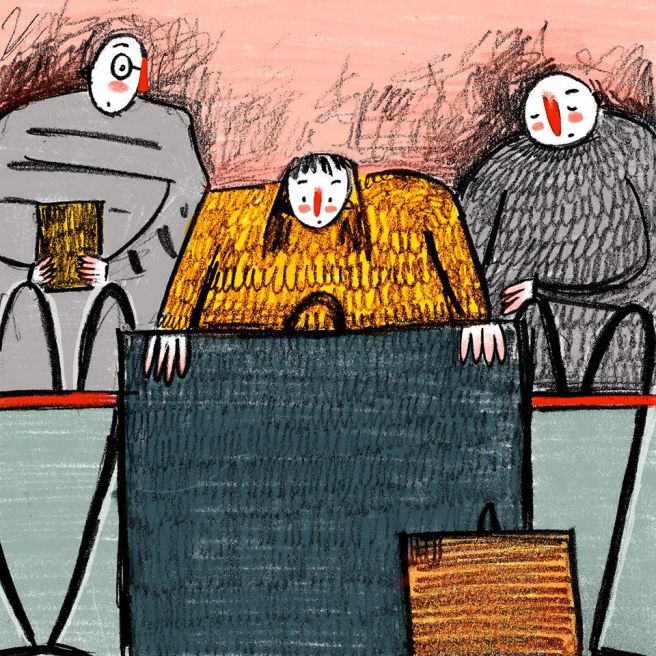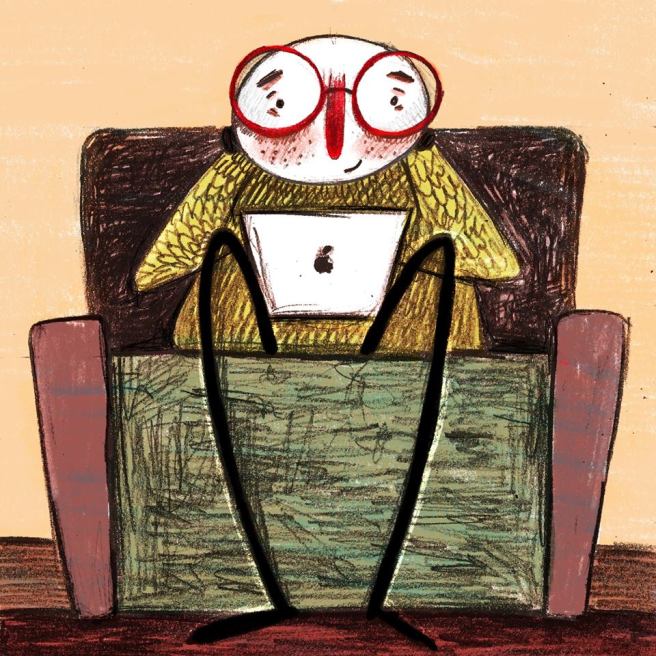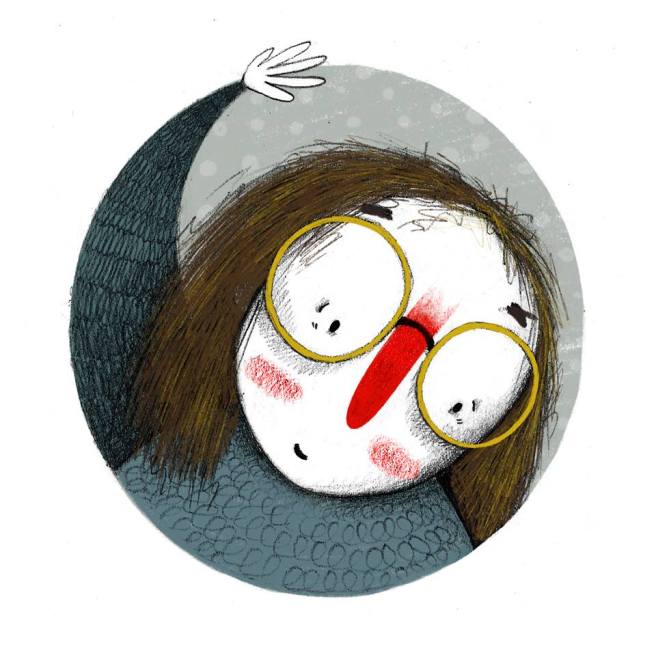Getting a job in the creative industry can be a real challenge. It seems everyone is after the same vacancy, and it gets difficult knowing what you can do to make sure you stand out from others. Eve, the illustrator of this blog, has put together a list of her top 10 tips for making a visual portfolio.

First, I’d like to say that most creative jobs will ask for some form of portfolio. As this is your chance to showcase your work and show off what you can do, you’ve got to get it right. I’m a freelance writer, so I always keep a record of what I’ve written, who for, and when. Then, upon request, I can provide a list of links to all published online content I’ve written for various employers. A writing portfolio is less visual, and will take employers longer to get through it. Therefore, it’s always best to take a hard copy of your work along to the interview, too, so that they can keep it for reference. Take screenshots of your published work, as well as providing a link, and have this all in one document so that it is easily accessible.
Eve’s Top 10 Tips for Making a Portfolio:
1. Visual Portfolios: Physical Vs Digital
If you are an animator, create GIFs of your work. or if you intend your work to be displayed digitally (website design, creation of social media assets etc.), then you may as well show it on the platform you intend it to be used for. There is no point in printing out frames of an animation or screenshotting samples of a website you created, when you can present it digitally or provide a link to it.
Therefore, when you attend an interview either have a copy ready on a memory stick/hard drive, or take your own laptop/tablet to display your portfolio.
If your work is mainly print-based, then it makes sense for you to have a physical portfolio. That way, clients/interviewers can see your work in the format you created the work for.
2. Portfolio Size
This really depends on your work, if your work is naturally rather small then your portfolio could be A4 size. As an illustrator, I work with large images, and so I have an A3 portfolio, but if you are applying or studying a subject such as Fine Art or Textiles then you are probably going to want an even larger portfolio to showcase the best of your work. Basically, the size of your portfolio depends on the size of your work, it should always be proportionate.

3. Selection
Be critical, what are you trying to show the client/interviewer? What skills are do you want to demonstrate? It should look professional, so only place images in your portfolio which are finished to a high standard, that demonstrate your style, creativity and talent.
4. How Long Should Your Portfolio Be?
This really depends on how long your interview/meeting is but, at university, we were advised that it should be around 15-25 pages. You don’t want a crazy long portfolio that you have to rush through, but equally you don’t what to be sat there with nothing to talk about. So, again, just tailor it to the job; your interviewer may tell you with how long the interview/meeting will last, so that you can get a good idea of how long to make your portfolio.
5. Order
You want to give an amazing first impression, so put the best piece of work at the beginning of your portfolio. This way, you’re starting with something you’re really proud of. Similarly, end with a strong piece of work in order to create a positive last impression, something that is memorable. Make sure your portfolio is structured well, that it is organised in some way and that your projects/pieces of art flow effortlessly. This will make your interview/meeting run a lot smoother.

6. Layout
Your portfolio should have a consistent layout throughout. Using the same font and margin dimensions creates a well-designed and professional looking portfolio. Once you have created a template, you can then insert your images into any layout composition you like. If you have a stand-alone image which is highly detailed, then that could sit on a page by itself. Or, if you have a sequence of images, arrange them all on one page. Use a variety of layouts to add interest to your portfolio, but be careful not to overcrowd each page, it may look messy and disorganised.
7. Show Your Work in Context
From experience, I’ve found that clients/interviewers like to see work that has been produced in response to a brief or a larger project. Rather than having random images which don’t really have reasoning behind them, showcase work that does. This could be a long term project you’ve been working on, a client brief, or a rebranding and packaging brief. Doing this will allow you to have a lot of context to talk about during your interview. It will also prove that you can follow briefs and work to a vision other than your own.
8. Mock-ups
Creating mock-ups, especially as an illustrator, is a great tool to show your work in context. A mock-up is essentially an image of a product (a T-shirt, mug, poster etc.) that artists can apply their work, too. A mock-up will give you an example of how your work may look on any given object, helping your interviewer to visualise how your work may look on their products, while giving them an idea of whether it would suit their brief. You can download mock-ups for free from the internet, there are thousands to choose from.
This is a useful website for creating mock-ups, and so is this one!
9. Examples of Your Work
Alongside your beautiful portfolio, I’ve found it useful to take examples of my work along to an interview. This could be a book you’ve designed, promotional material/items, posters etc., anything that shows what your work looks like in the ‘flesh’. It also acts as a great talking point, and breaks up just flicking through your portfolio; it provides the interview with a interactive element.
10. Tailor Your Portfolio
If you’re applying for job, you’ve probably – and should have – read the job description so you know what the employer is looking for. Personalise your portfolio to their interests. Take out and add in work which you think is most relevant to the job description. Change the order of your portfolio if you like, just make sure that your work is relevant and that you can talk about it in relevance to the job description and what work/services/products the company supplies.

We hope that these top 10 tips will help you the next time you come to putting together your portfolio. Just remember that this is an opportunity for you to really ‘show off’ your abilities, so don’t hold back when showcasing your work!
Do you have any extra tips? We’d love to hear from you if you have any questions, tips, or just general comments. Just click here to get in contact with us, and to be featured on our blog!
If you enjoyed reading, then please like and share this post with your friends. Help us to help others!






